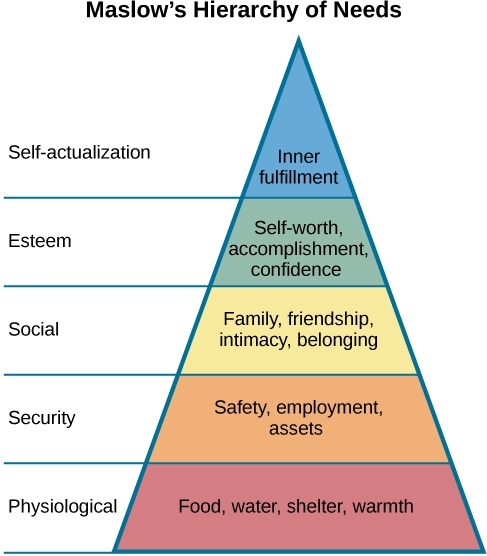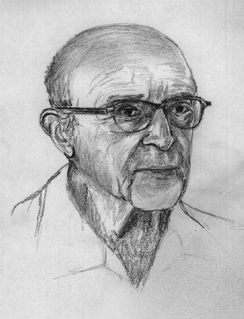| << Chapter < Page | Chapter >> Page > |

Carl Rogers (1902–1987) was also an American psychologist who, like Maslow, emphasized the potential for good that exists within all people ( [link] ). Rogers used a therapeutic technique known as client-centered therapy in helping his clients deal with problematic issues that resulted in their seeking psychotherapy. Unlike a psychoanalytic approach in which the therapist plays an important role in interpreting what conscious behavior reveals about the unconscious mind, client-centered therapy involves the patient taking a lead role in the therapy session. Rogers believed that a therapist needed to display three features to maximize the effectiveness of this particular approach: unconditional positive regard, genuineness, and empathy. Unconditional positive regard refers to the fact that the therapist accepts their client for who they are, no matter what he or she might say. Provided these factors, Rogers believed that people were more than capable of dealing with and working through their own issues (Thorne&Henley, 2005).

Humanism has been influential to psychology as a whole. Both Maslow and Rogers are well-known names among students of psychology (you will read more about both men later in this text), and their ideas have influenced many scholars. Furthermore, Rogers’ client-centered approach to therapy is still commonly used in psychotherapeutic settings today (O’hara, n.d.)
View a brief video of Carl Rogers describing his therapeutic approach.
Behaviorism’s emphasis on objectivity and focus on external behavior had pulled psychologists’ attention away from the mind for a prolonged period of time. The early work of the humanistic psychologists redirected attention to the individual human as a whole, and as a conscious and self-aware being. By the 1950s, new disciplinary perspectives in linguistics, neuroscience, and computer science were emerging, and these areas revived interest in the mind as a focus of scientific inquiry. This particular perspective has come to be known as the cognitive revolution (Miller, 2003). By 1967, Ulric Neisser published the first textbook entitled Cognitive Psychology , which served as a core text in cognitive psychology courses around the country (Thorne&Henley, 2005).
Although no one person is entirely responsible for starting the cognitive revolution, Noam Chomsky was very influential in the early days of this movement ( [link] ). Chomsky (1928–), an American linguist, was dissatisfied with the influence that behaviorism had had on psychology. He believed that psychology’s focus on behavior was short-sighted and that the field had to re-incorporate mental functioning into its purview if it were to offer any meaningful contributions to understanding behavior (Miller, 2003).

Notification Switch
Would you like to follow the 'Psychology' conversation and receive update notifications?